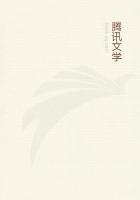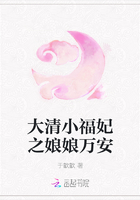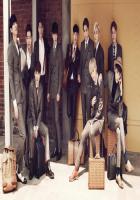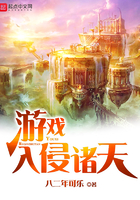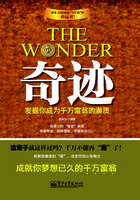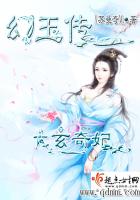THE STORY OF MIMI-NASHI-HOICHI
[1]See my Kotto,for a description of these curious crabs.
[2]Or,Shimonoseki.The town is also known by the name of Bakkan.
[3]The biwa,a kind of four-stringed lute,is chiefly used in musical recitative.Formerly the professional minstrels who recited the Heike-Monogatari,and other tragical histories,were called biwa-hoshi,or "lute-priests."The origin of this appellation is not clear;but it is possible that it may have been suggested by the fact that "lute-priests"as well as blind shampooers,had their heads shaven,like Buddhist priests.
The biwa is played with a kind of plectrum,called bachi,usually made of horn.
(1)A response to show that one has heard and is listening attentively.
[4]A respectful term,signifying the opening of a gate.It was used by samurai when calling to the guards on duty at a lord's gate for admission.
[5]Or the phrase might be rendered,"for the pity of that part is the deepest."The Japanese word for pity in the original text is "aware."[6]"Traveling incognito"is at least the meaning of the original phrase,--"****** a disguised august-journey"(shinobi no go-ryoko).
[7]The Smaller Pragna-Paramita-Hridaya-Sutra is thus called in Japanese.
Both the smaller and larger sutras called Pragna-Paramita ("Transcendent Wisdom")have been translated by the late Professor Max Muller,and can be found in volume xlix.of the Sacred Books of the East ("Buddhist Mahayana Sutras").--Apropos of the magical use of the text,as described in this story,it is worth remarking that the subject of the sutra is the Doctrine of the Emptiness of Forms,--that is to say,of the unreal character of all phenomena or noumena..."Form is emptiness;and emptiness is form.
Emptiness is not different from form;form is not different from emptiness.
What is form --that is emptiness.What is emptiness --that is form...
Perception,name,concept,and knowledge,are also emptiness...There is no eye,ear,nose,tongue,body,and mind...But when theenvelopment of consciousness has been annihilated,then he [the seeker]becomes free from all fear,and beyond the reach of change,enjoying final Nirvana."
OSHIDORI
[1]From ancient time,in the Far East,these birds have been regarded as emblems of conjugal affection.
[2]There is a pathetic double meaning in the third verse;for the syllables composing the proper name Akanuma ("Red Marsh")may also be read as akanu-ma,signifying "the time of our inseparable (or delightful)relation."So the poem can also be thus rendered:--"When the day began to fail,I had invited him to accompany me...!Now,after the time of that happy relation,what misery for the one who must slumber alone in the shadow of the rushes!"--The makomo is a short of large rush,used for ****** baskets.
THE STORY OF O-TEI
(1)"-sama"is a polite suffix attached to personal names.
(2)A Buddhist term commonly used to signify a kind of heaven.
[1]The Buddhist term zokumyo ("profane name")signifies the personal name,borne during life,in contradistinction to the kaimyo ("sila-name")or homyo ("Law-name")given after death,--religious posthumous appellations inscribed upon the tomb,and upon the mortuary tablet in the parish-temple.--For some account of these,see my paper entitled,"The Literature of the Dead,"in Exotics and Retrospectives.
[2]Buddhist household shrine.
(3)Direct translation of a Japanese form of address used toward young,unmarried women.
DIPLOMACY
(1)The spacious house and grounds of a wealthy person is thus called.
(2)A Buddhist service for the dead.
OF A MIRROR AND A BELL
(1)Part of present-day Shizuoka Prefecture.
(2)The two-hour period between 1AM and 3AM.
(3)A monetary unit.
JIKININKI
(1)The southern part of present-day Gifu Prefecture.
[1]Literally,a man-eating goblin.The Japanese narrator gives also the Sanscrit term,"Rakshasa;"but this word is quite as vague as jikininki,since there are many kinds of Rakshasas.Apparently the word jikininki signifies here one of the Baramon-Rasetsu-Gaki,--forming the twenty-sixth class of pretas enumerated in the old Buddhist books.
[2]A Segaki-service is a special Buddhist service performed on behalf of beings supposed to have entered into the condition of gaki (pretas),or hungry spirits.For a brief account of such a service,see my Japanese Miscellany.
[3]Literally,"five-circle [or five-zone]stone."A funeral monument consisting of five parts superimposed,--each of a different form,--symbolizing the five mystic elements:Ether,Air,Fire,Water,Earth.
MUJINA
(1)A kind of badger.Certain animals were thought to be able to transform themselves and cause mischief for humans.
[1]O-jochu ("honorable damsel"),a polite form of address used in speaking to a young lady whom one does not know.
(2)An apparition with a smooth,totally featureless face,called a "nopperabo,"is a stock part of the Japanese pantheon of ghosts and demons.
[2]Soba is a preparation of buckwheat,somewhat resembling vermicelli.
(3)An exclamation of annoyed alarm.
(4)Well!
ROKURO-KUBI
[1]The period of Eikyo lasted from 1429to 1441.
[2]The upper robe of a Buddhist priest is thus called.
(1)Present-day Yamanashi Prefecture.
(2)A term for itinerant priests.
[3]A sort of little fireplace,contrived in the floor of a room,is thus described.The ro is usually a square shallow cavity,lined with metal and half-filled with ashes,in which charcoal is lighted.
(3)Direct translation of "suzumushi,"a kind of cricket with a distinctive chirp like a tiny bell,whence the name.
(4)Now a rokuro-kubi is ordinarily conceived as a goblin whose neck stretches out to great lengths,but which nevertheless always remains attached to its body.
(5)A Chinese collection of stories on the supernatural.

